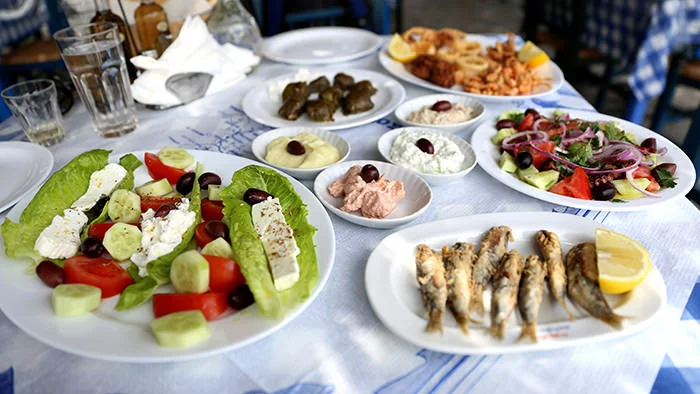Crete, the largest island in Greece, is famed for its rich culinary heritage, which is deeply intertwined with its history, culture, and geography. A significant aspect of Cretan cuisine is the use of local herbs and spices, which impart distinctive flavors and aromas to traditional dishes. For food enthusiasts seeking an authentic culinary experience, cooking classes that focus on Cretan herbs and spices offer a unique opportunity to delve into the island’s gastronomic traditions. These classes not only teach the art of cooking but also provide insight into the health benefits and cultural significance of Cretan herbs and spices.
The Rich Heritage of Cretan Cuisine
Cretan cuisine is rooted in ancient traditions, utilizing ingredients that have been staples in the island’s diet for centuries. The use of wild herbs and spices is particularly prominent, reflecting the island’s biodiversity and the resourcefulness of its inhabitants. Commonly used herbs include oregano, thyme, sage, rosemary, and marjoram, while spices like cinnamon, cumin, and coriander add depth to various dishes. These ingredients are not only valued for their flavors but also for their medicinal properties, making them integral to both Cretan cooking and traditional remedies.
The Essence of Cretan Cooking Classes
Cooking classes in Crete often take place in picturesque settings, such as traditional village kitchens, organic farms, or family-run tavernas. These classes are typically led by experienced local chefs or home cooks who share their knowledge and passion for Cretan cuisine. Participants are introduced to the basics of selecting, harvesting, and preparing herbs and spices, and they learn how to incorporate these ingredients into various dishes.
- Herb and Spice Identification and Harvesting
The first step in many Cretan cooking classes involves familiarizing participants with the island’s native herbs and spices. Instructors often take participants on a guided herb walk through gardens or the countryside, where they learn to identify and harvest fresh herbs. This hands-on experience helps participants understand the importance of using fresh, locally sourced ingredients in Cretan cooking.
- Cooking Techniques and Traditional Recipes
Once the herbs and spices are gathered, participants move on to the cooking phase. They learn various cooking techniques, such as marinating, infusing, and seasoning, which are essential for bringing out the best flavors in Cretan dishes. Traditional recipes are often the focus, including well-known dishes like moussaka, dolmades (stuffed grape leaves), and tsigariasto (slow-cooked lamb). Participants also learn to prepare meze (small dishes) such as tzatziki, dakos (Cretan rusks with tomatoes and cheese), and horta (wild greens), which showcase the versatility of Cretan herbs.
- Health Benefits and Culinary Uses
Cretan cooking classes emphasize the health benefits of herbs and spices, which are a cornerstone of the Mediterranean diet. Instructors explain how these ingredients can enhance digestion, boost immunity, and provide essential nutrients. For example, oregano and thyme are rich in antioxidants, while rosemary is known for its anti-inflammatory properties. Participants gain a deeper appreciation for how Cretan cuisine balances flavor with health benefits.
- Cultural Insights and Culinary Traditions
Beyond cooking techniques and recipes, these classes offer insights into the cultural significance of Cretan herbs and spices. Participants learn about the historical uses of these ingredients in Cretan society, including their roles in religious ceremonies, festivals, and daily life. This cultural context enriches the cooking experience, providing a holistic understanding of Cretan cuisine.
Popular Cooking Classes in Crete
Several renowned cooking classes on the island highlight the use of Cretan herbs and spices. Here are a few notable ones:
- Cretan Thyme Cooking Classes
Located in the picturesque village of Vamos, Cretan Thyme offers immersive cooking experiences that emphasize the use of local herbs. Participants enjoy hands-on lessons in a traditional stone house, learning to prepare authentic dishes under the guidance of skilled chefs. The classes often include a visit to the local market to source fresh ingredients, followed by a communal meal where participants savor the fruits of their labor.
- Botanical Park & Gardens of Crete
Situated near Chania, the Botanical Park & Gardens of Crete provides a unique setting for cooking classes. The park’s extensive collection of native plants serves as both a classroom and a source of fresh herbs. Classes here focus on sustainable cooking practices and the culinary uses of Cretan herbs and spices. Participants explore the gardens, harvest ingredients, and prepare dishes that highlight the flavors of Crete.
- Yiannis’ Cooking Class
Yiannis’ Cooking Class, based in Heraklion, offers an intimate cooking experience in a family-run taverna. Yiannis, a passionate home cook, teaches participants how to make traditional Cretan dishes using herbs and spices from his own garden. The class includes a detailed explanation of each ingredient’s role in the dish and its health benefits, making it a well-rounded culinary adventure.
Conclusion
Cooking classes that focus on Cretan herbs and spices provide an enriching and immersive experience for anyone interested in Mediterranean cuisine. By participating in these classes, individuals not only learn to prepare delicious and healthy dishes but also gain a deeper appreciation for the cultural and historical significance of Cretan culinary traditions. Whether you are a seasoned cook or a curious foodie, these classes offer a unique way to connect with Crete’s rich gastronomic heritage and take a piece of it home with you.


